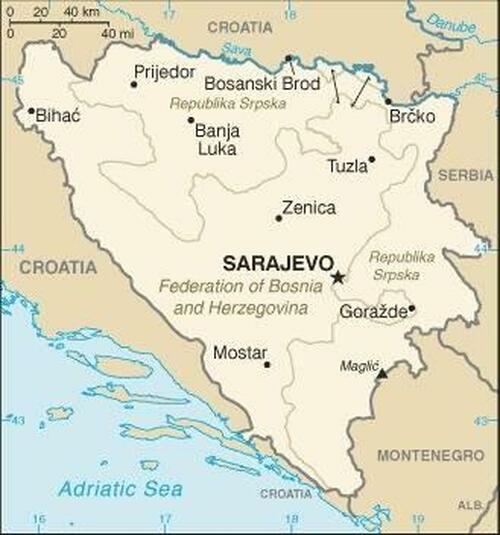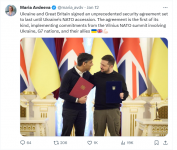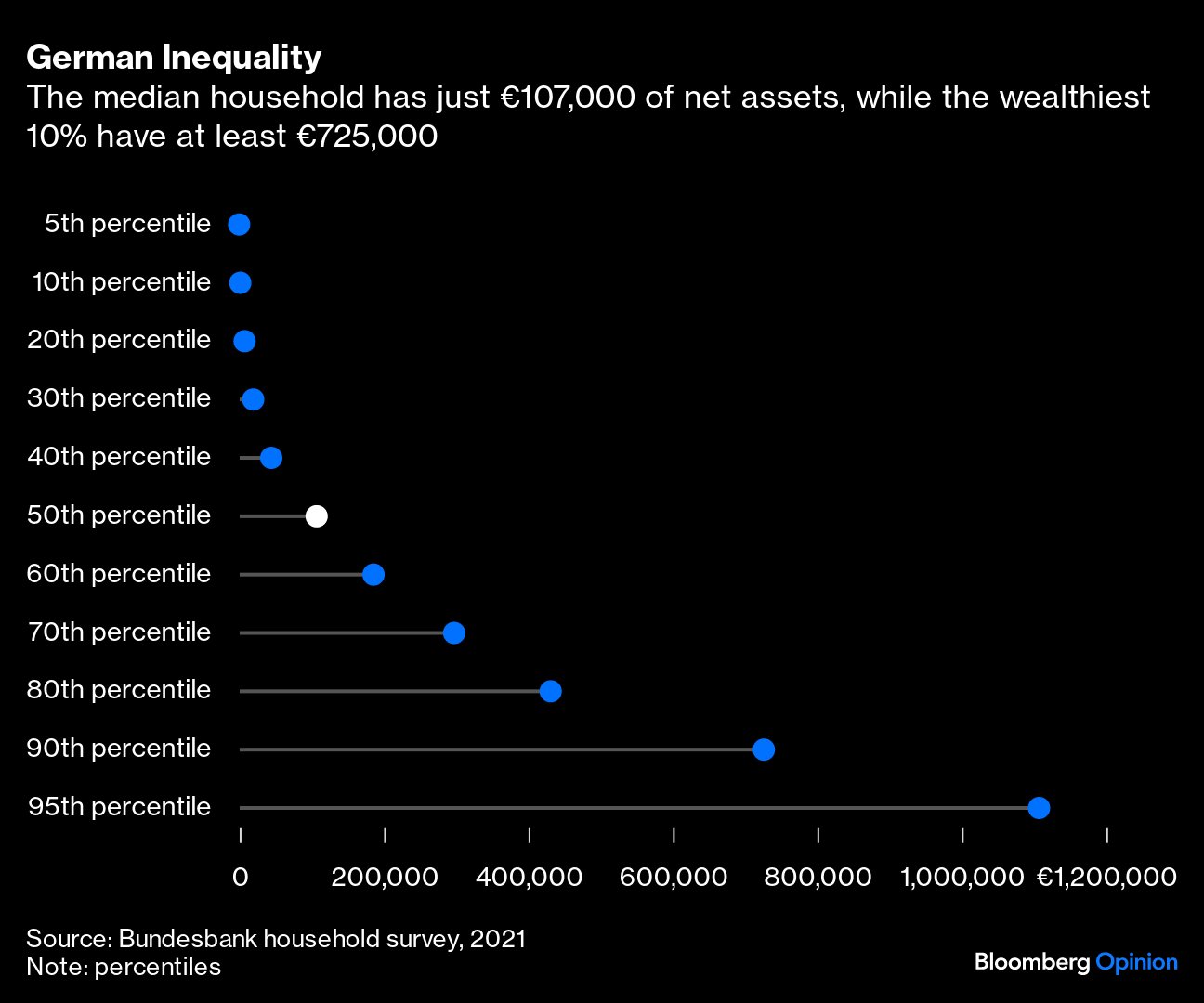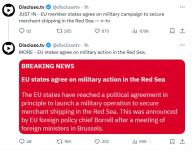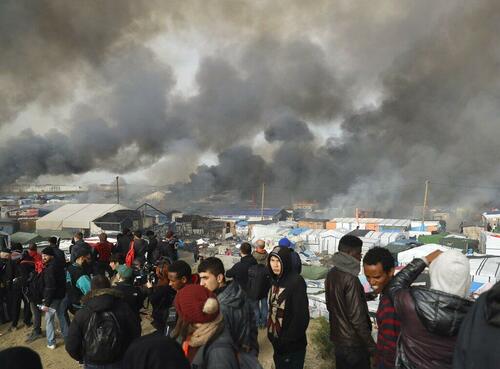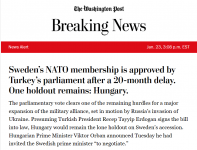Plain Jane
Just Plain Jane
December 2023 thread:
 www.timebomb2000.com
www.timebomb2000.com
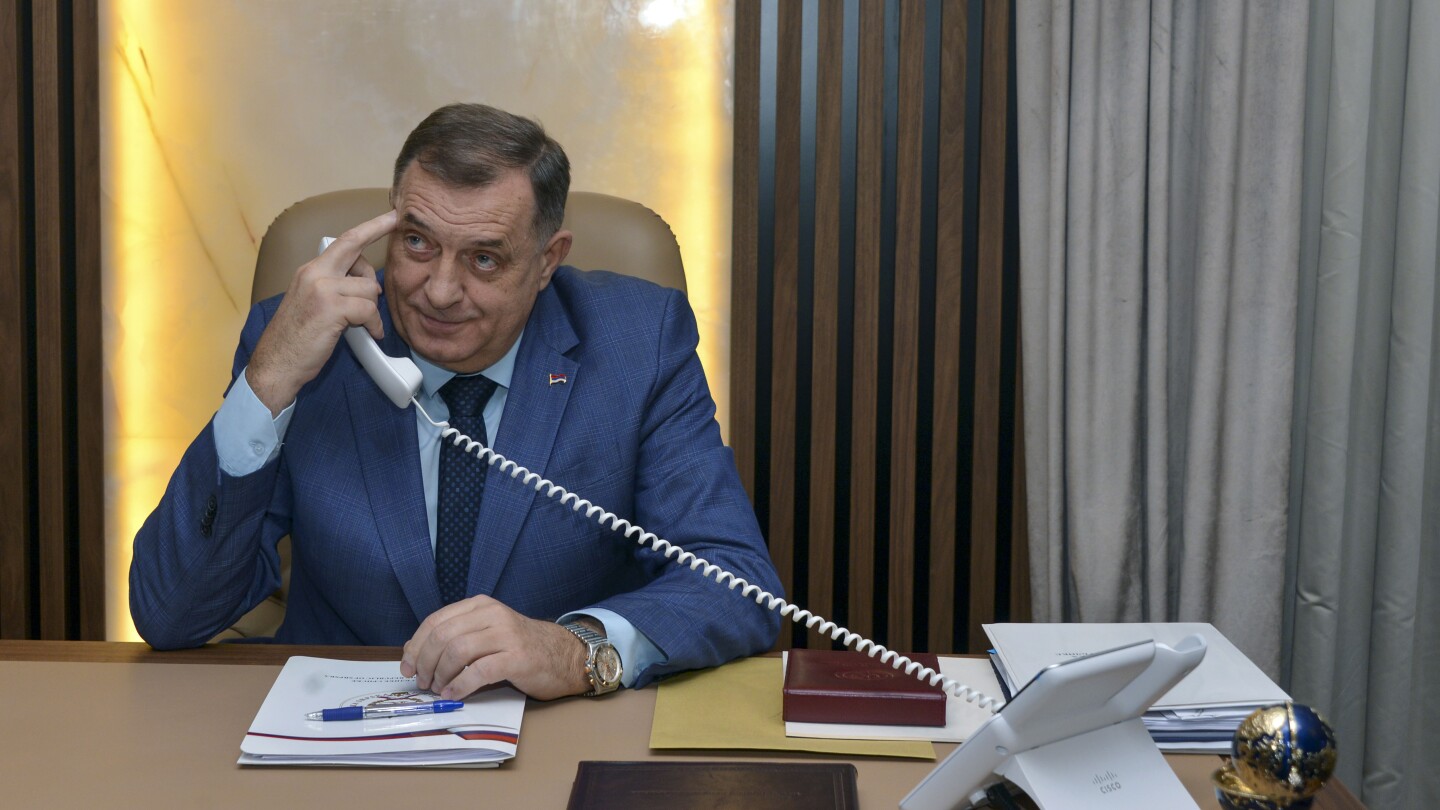
 apnews.com
apnews.com
RADUL RADOVANOVIC
Updated 3:26 AM EST, December 30, 2023
Share
BANJA LUKA, Bosnia-Herzegovina (AP) — The Bosnian Serbs’ separatist leader vowed to carry on weakening his war-scarred country to the point where it will tear apart, despite a pledge by the United States to prevent such an outcome.
“I am not irrational, I know that America’s response will be to use force … but I have no reason to be frightened by that into sacrificing (Serb) national interests,” Milorad Dodik, the president of Bosnia’s Serb-run part, told The Associated Press in an interview Friday.
He said any any attempt to use international intervention to further strengthen Bosnia’s shared, multiethnic institutions will be met by Bosnian Serb decision to abandon them completely and take the country back to the state of disunity and dysfunction it was in at the end of its brutal interethnic war in the 1990s.
Because Western democracies will not be agreeable to that, he added, “in the next stage, we will be forced by their reaction to declare full independence” of the Serb-controlled regions of Bosnia.
The Bosnian War started in 1992 when Belgrade-backed Bosnian Serbs tried to create an “ethnically pure” region with the aim of joining neighboring Serbia by killing and expelling the country’s Croats and Bosniaks, who are mostly Muslims. More than 100,000 people were killed and upward of 2 million, or over half of the country’s population, were driven from their homes before a peace agreement was reached in Dayton, Ohio, late in 1995.
The agreement divided Bosnia into two entities — the Serb-run Republika Srpska and the Bosniak-Croat Federation — which were given wide autonomy but remained linked by some shared, multiethnic institutions. It also instituted the Office of the High Representative, an international body charged with shepherding the implementation of the peace agreement that was given broad powers to impose laws or dismiss officials who undermined the fragile post-war ethnic balance, including judges, civil servants, and members of parliament.
Over the years, the OHR has pressured Bosnia’s bickering ethnic leaders to build shared, statewide institutions, including the army, intelligence and security agencies, the top judiciary and the tax administration. However, further bolstering of the existing institutions and the creation of new ones is required if Bosnia is to reach its declared goal of joining the European Union.
Dodik appeared unperturbed Friday by the statement posted a day earlier on X, formerly known as Twitter, by James O’Brien, the U.S. assistant secretary of State for European and Eurasian affairs, that Washington will act if anyone tries to change “the basic element” of the 1995 peace agreement for Bosnia, and that there is “no right of secession.”
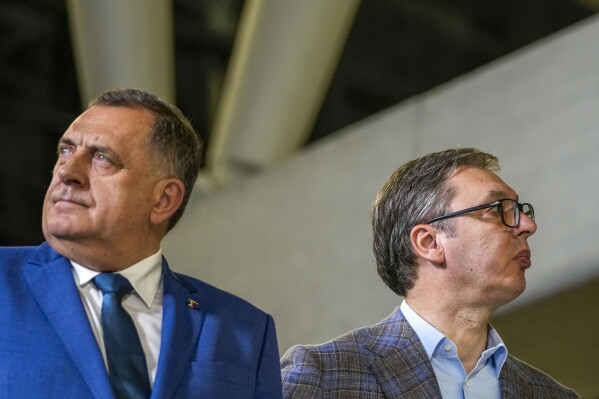
FILE - Bosnian Serb leader Milorad Dodik, left attends with Serbian President Aleksandar Vucic a ceremony marking the opening of the station building of the Prokop railway station in Belgrade, Serbia, Friday, Oct. 20, 2023. Bosnian Serb separatist leader wowed to carry on weakening his multiethnic, war-scarred country to the point where it will tear apart, despite the pledge by the United States to prevent such an outcome. “I am not irrational, I know that America’s response will be to use force…but I have no reason to be frightened by that (realization) into sacrificing (Serb) national interests,” Milorad Dodik, the president of Bosnia’s Serb-run part, told The Associated Press in an interview Friday. (AP Photo/Darko Vojinovic, File)
“Among Serbs, one thing is clear and definite and that is a growing realization that the years and decades ahead of us are the years and decades of Serb national unification,” Dodik said.
“Brussels is using the promise of EU accession as a tool to unitarize Bosnia,” said Dodik, who is staunchly pro-Russian, adding: “In principle, our policy still is that we want to join (the EU), but we no longer see that as our only alternative.”
The EU, he said, “had proven itself capable of working against its own interests” by siding with Washington against Moscow when Russia launched its ongoing invasion of Ukraine.
Dodik, who has been calling for the separation of the Serb entity from the rest of Bosnia for over a decade, has faced British and U.S. sanctions for his policies but has had Russia’s support.
There are widespread fears that Russia is trying to destabilize Bosnia and the rest of the region to shift at least some world attention from its war in Ukraine.
“Whether U.S. and Britain like it or not, we will turn the administrative boundary between (Bosnia’s two) entities into our national border,” Dodik said.
INTL - Europe: Politics, Economics, Military - December 2023
November's thread: https://www.timebomb2000.com/xf/index.php?threads/europe-politics-economics-military-november-2023.639579/#post-9957615 https://apnews.com/article/germany-arrests-christmas-market-attack-plot-dd1f7ec7a984c2eb980ca9ab09b06eb2 Tis the season... Teenage suspects accused of...
Separatist Bosnian Serb leader Milorad Dodik vows to tear his country apart despite US warnings
The Bosnian Serbs’ separatist leader is vowing to keep weakening his war-scarred country until it tears apart, despite a pledge by the United States to prevent that.
Separatist Bosnian Serb leader Milorad Dodik vows to tear his country apart despite US warnings
RADUL RADOVANOVIC
Updated 3:26 AM EST, December 30, 2023
Share
BANJA LUKA, Bosnia-Herzegovina (AP) — The Bosnian Serbs’ separatist leader vowed to carry on weakening his war-scarred country to the point where it will tear apart, despite a pledge by the United States to prevent such an outcome.
“I am not irrational, I know that America’s response will be to use force … but I have no reason to be frightened by that into sacrificing (Serb) national interests,” Milorad Dodik, the president of Bosnia’s Serb-run part, told The Associated Press in an interview Friday.
He said any any attempt to use international intervention to further strengthen Bosnia’s shared, multiethnic institutions will be met by Bosnian Serb decision to abandon them completely and take the country back to the state of disunity and dysfunction it was in at the end of its brutal interethnic war in the 1990s.
Because Western democracies will not be agreeable to that, he added, “in the next stage, we will be forced by their reaction to declare full independence” of the Serb-controlled regions of Bosnia.
The Bosnian War started in 1992 when Belgrade-backed Bosnian Serbs tried to create an “ethnically pure” region with the aim of joining neighboring Serbia by killing and expelling the country’s Croats and Bosniaks, who are mostly Muslims. More than 100,000 people were killed and upward of 2 million, or over half of the country’s population, were driven from their homes before a peace agreement was reached in Dayton, Ohio, late in 1995.
The agreement divided Bosnia into two entities — the Serb-run Republika Srpska and the Bosniak-Croat Federation — which were given wide autonomy but remained linked by some shared, multiethnic institutions. It also instituted the Office of the High Representative, an international body charged with shepherding the implementation of the peace agreement that was given broad powers to impose laws or dismiss officials who undermined the fragile post-war ethnic balance, including judges, civil servants, and members of parliament.
Over the years, the OHR has pressured Bosnia’s bickering ethnic leaders to build shared, statewide institutions, including the army, intelligence and security agencies, the top judiciary and the tax administration. However, further bolstering of the existing institutions and the creation of new ones is required if Bosnia is to reach its declared goal of joining the European Union.
Dodik appeared unperturbed Friday by the statement posted a day earlier on X, formerly known as Twitter, by James O’Brien, the U.S. assistant secretary of State for European and Eurasian affairs, that Washington will act if anyone tries to change “the basic element” of the 1995 peace agreement for Bosnia, and that there is “no right of secession.”
FILE - Bosnian Serb leader Milorad Dodik, left attends with Serbian President Aleksandar Vucic a ceremony marking the opening of the station building of the Prokop railway station in Belgrade, Serbia, Friday, Oct. 20, 2023. Bosnian Serb separatist leader wowed to carry on weakening his multiethnic, war-scarred country to the point where it will tear apart, despite the pledge by the United States to prevent such an outcome. “I am not irrational, I know that America’s response will be to use force…but I have no reason to be frightened by that (realization) into sacrificing (Serb) national interests,” Milorad Dodik, the president of Bosnia’s Serb-run part, told The Associated Press in an interview Friday. (AP Photo/Darko Vojinovic, File)
“Among Serbs, one thing is clear and definite and that is a growing realization that the years and decades ahead of us are the years and decades of Serb national unification,” Dodik said.
“Brussels is using the promise of EU accession as a tool to unitarize Bosnia,” said Dodik, who is staunchly pro-Russian, adding: “In principle, our policy still is that we want to join (the EU), but we no longer see that as our only alternative.”
The EU, he said, “had proven itself capable of working against its own interests” by siding with Washington against Moscow when Russia launched its ongoing invasion of Ukraine.
Dodik, who has been calling for the separation of the Serb entity from the rest of Bosnia for over a decade, has faced British and U.S. sanctions for his policies but has had Russia’s support.
There are widespread fears that Russia is trying to destabilize Bosnia and the rest of the region to shift at least some world attention from its war in Ukraine.
“Whether U.S. and Britain like it or not, we will turn the administrative boundary between (Bosnia’s two) entities into our national border,” Dodik said.
Last edited:


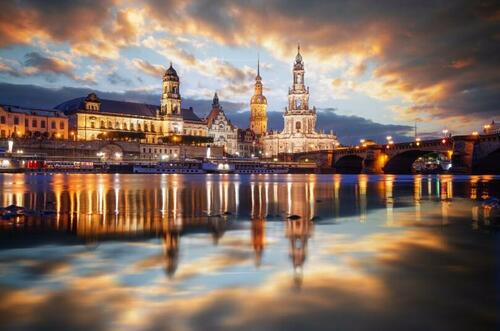
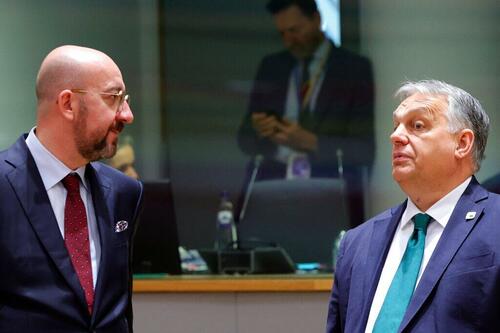
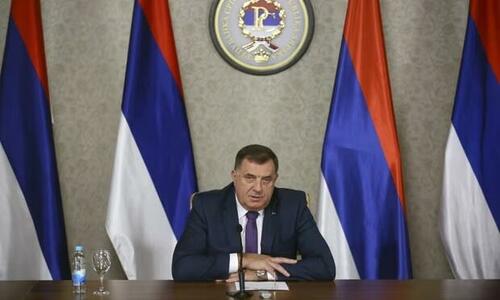 Milorad Dodik, via AP
Milorad Dodik, via AP